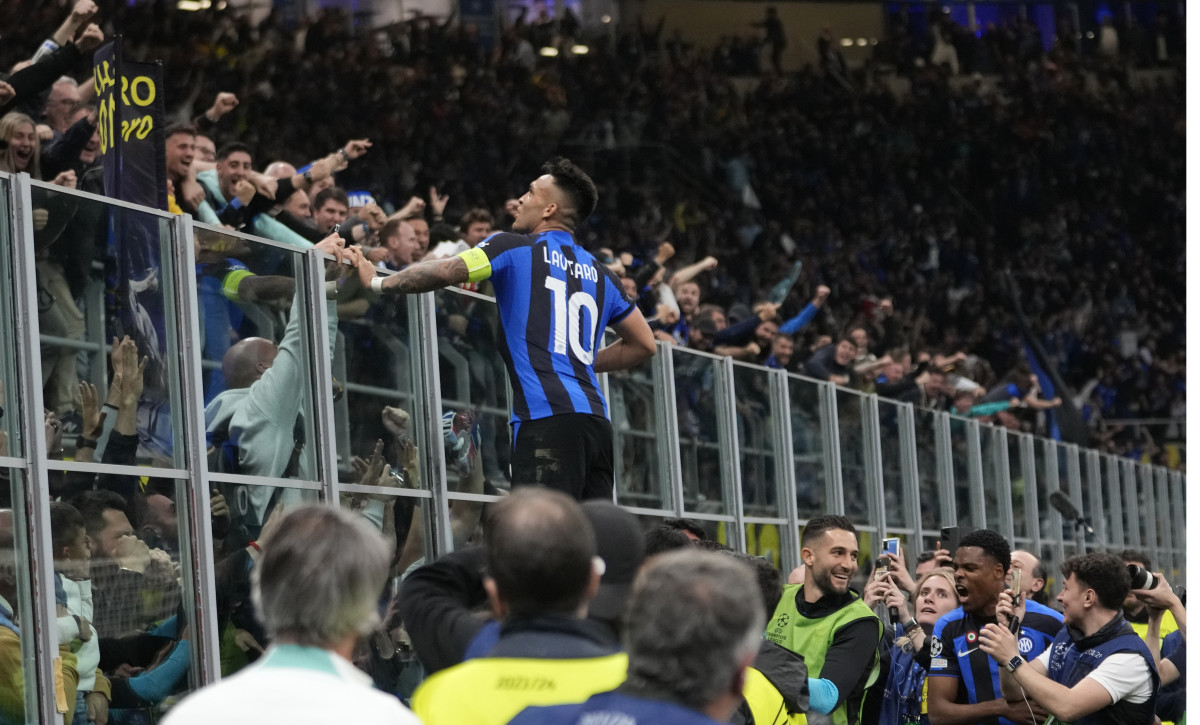Inter Controls Milan Derby to Continue Unlikely Run to Champions League Final

First the tie was won and then it was contested. Inter will play in its first Champions League final since 2010 after beating its city rivals Milan 3–0 on aggregate in the semifinal, its passage effectively sealed by two goals in the first 11 minutes of the first leg. Tuesday’s 1–0 win was not comfortable, exactly, but neither did Milan ever really generate the sort of pressure to suggest a comeback was possible.
Whether it faces Manchester City or Real Madrid in Istanbul, Inter will be a significant underdog, but its chances should not be dismissed. This is a clever side that showed in two group games against Barcelona how it can set traps for opponents. As it showed again in Tuesday, when it has a lead it is good at controlling the pace of games. Left wing-back Federico Dimarco excelled across both legs, a bleached blur of energy on the left, Francesco Acerbi was solid in the mould of a classic Italian center back while Nicolo Barella, after a fairly quiet first leg, performed a vital function in maintaining possession, helping Inter to prevent Milan from ever building up a head of steam in Tuesday’s match.
There was always going to be an early Milan surge and, although it tested Inter, it yielded only one clear chance as Sandro Tonali accelerated by Henrikh Mkhitaryan and cut the ball back for Brahim Díaz who, with time to measure his shot, scuffed it slightly, allowing André Onana to save low to his right.
Rafael Leao’s absence had been a key factor in Milan’s lack of attacking potency in the first leg, and his return after injury did make a difference. His involvement was spasmodic but eight minutes before halftime, he outmuscled Matteo Darmian—with the ball possibly bouncing off his upper arm—and got a run at Acerbi. He wobbled by him, but slid his shot just wide of the far post.
And while Milan did threaten, it was Inter who had the better chances in the first half, goalkeeper Mike Maignan making one remarkable reflex block to keep out Lautaro Martínez’s header from a ball in by Hakan Çalhanoglu. Milan defend very deep from set plays and, while that is a complication for opposing sides in that there is no obvious corridor into which to cross the ball, and it means their defenders can at least face forward, it can cause problems if the opposition wins the first header.
While nobody would suggest Inter has the sort of strength in depth that characterizes City or Real Madrid, when Mkhytarian was forced off in the first half, it could bring on Marcelo Brozović. Edin Džeko, whose role (and goal) in the first leg was vital, has struck up a fine partnership with Martínez, but that means Romelu Lukaku is left on the bench—a very useful option to bring on against tiring opponents, as he came on here for Džeko after 66 minutes.

It was Lukaku’s hold-up play that created the chance for Martínez with 16 minutes remaining. Maignan has had a fine competition, and his absence with an ankle injury is probably a major reason Milan did not come close to defending its Serie A title, but he was disappointingly beaten at his near post. Martínez cooly slotted home and now, having won the World Cup with Argentina, stands one game from a rare double (11 players have won the Champions League and World Cup in the same season; this World Cup occupies an odd position in that it fell during the 2022-23 European season whereas a June World Cup would have been considered 2021-22).
Yet for all that is admirable about Inter, it would be futile to pretend either of these Milan derbies has been anything like the level of City’s first leg against Madrid. That is simply the way the finances of modern European football are structured, although the presence of five Serie A teams in the semifinals of the three European competitions perhaps hints that Italian football is on the rise again.
Inter was battling against richer opposition in 2010 as well, as José Mourinho won his second Champions League, creating a team of battlers, players with points to prove. There are similarities with this Inter side. Few have yet suggested Simone Inzaghi is in Mourinho’s class as a manager, but an unexpected Champions League success would be a very good way to make his case.
